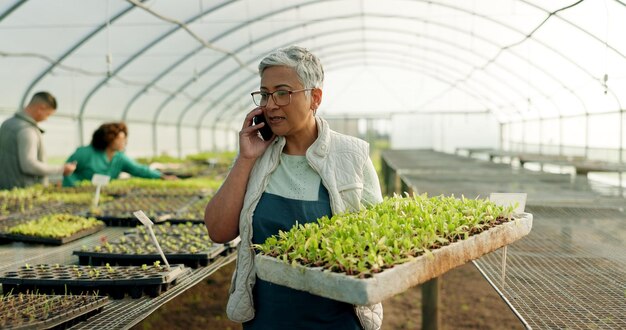Navigating the Agricultural Sector as a Startup in South Africa

The agricultural sector in South Africa presents immense opportunities, yet startups often find the landscape challenging to navigate. Agriculture remains a vital part of the South African economy, contributing significantly to food security and employment. However, to break into and thrive in this industry, startups must understand the complexities involved, from regulatory requirements and financial barriers to the nuances of climate and market trends. Here are key steps and strategies for startups aiming to make a mark in South Africa’s agricultural sector.
1. Understanding the Market and Choosing a Niche
The agricultural sector is diverse, encompassing crop farming, livestock, aquaculture, and agritech. Identifying a specific area to specialize in is essential. This might include organic produce, livestock farming, or leveraging technology to improve agricultural processes. Researching market demand, competitive landscape, and potential profit margins within each niche can provide a clearer direction. Moreover, aligning your business goals with specific market needs helps streamline operations and build a more robust customer base.
2. Navigating Regulatory Requirements
South Africa’s agricultural industry is heavily regulated to ensure food safety and protect natural resources. Startups must familiarize themselves with licenses, permits, and certifications needed for their specific activities, as well as comply with regulations related to land use, water rights, and environmental conservation. The Department of Agriculture, Land Reform and Rural Development (DALRRD) is a primary resource for obtaining information on these requirements. Building good relationships with local municipalities and industry regulators can help in navigating these complex frameworks.
3. Securing Funding and Resources
Financing can be a considerable hurdle for agricultural startups, especially those requiring substantial capital for equipment, land, and technology. Several financing options are available, including grants, loans, and incentives provided by the government, private sector, and institutions like the Land Bank. Government initiatives such as the AgriBEE Fund aim to support black-owned agricultural businesses, while incubators and accelerators such as the SA Innovation Summit provide guidance and resources tailored for startups. Crowdfunding and partnerships with established farms are additional avenues worth exploring.
4. Utilizing Technology and Innovation
Technology is transforming agriculture in South Africa, from precision farming and drone technology to mobile apps that provide real-time data on weather and soil health. For startups, embracing agritech can enhance efficiency, yield, and profitability. Technologies like Internet of Things (IoT) devices and satellite imaging allow farmers to monitor crops remotely, optimize water usage, and predict pest outbreaks, reducing risks and saving resources. Platforms like Hello Tractor connect small farmers with equipment rentals, making high-tech tools accessible without significant investment.
5. Addressing Environmental and Climatic Challenges
South Africa’s climate is diverse and prone to droughts, making sustainable practices vital. Startups should invest in climate-smart agriculture techniques, such as drip irrigation, drought-resistant crop varieties, and regenerative farming practices to maintain soil health. Leveraging weather forecasting apps and seasonal planning tools can help mitigate risks associated with climate variability. Additionally, educating customers about eco-friendly practices may enhance your brand’s appeal, especially among environmentally conscious consumers.
6. Building a Reliable Supply Chain and Distribution Network
One of the critical challenges in agriculture is managing the supply chain from farm to consumer. Startups should focus on establishing reliable partnerships with suppliers, transporters, and distributors. Exploring multiple distribution channels, including local markets, online platforms, and direct-to-consumer sales, can maximize reach and revenue. Collaborating with established cooperatives or distribution networks may also allow startups to benefit from shared resources and reduce logistical costs.
7. Marketing and Creating Brand Loyalty
Creating awareness and building brand loyalty are crucial for startup success, particularly in the agricultural sector, where customers often prefer trusted, long-standing suppliers. Developing a strong online presence, using social media to share the story behind your products, and educating consumers on the benefits of locally produced goods can drive brand recognition. Offering unique value propositions, such as organic certification, fair trade practices, or eco-friendly packaging, may further set your startup apart in the competitive landscape.
8. Staying Informed and Adapting to Policy Changes
Agricultural policies and regulations can change frequently, impacting everything from pricing structures to export possibilities. Staying informed about new legislation, industry trends, and trade agreements is essential for startups to remain competitive and compliant. Joining industry associations such as Agri SA or the South African Agricultural Machinery Association (SAAMA) provides access to current information, industry networks, and advocacy resources. Networking events, workshops, and conferences also offer valuable insights and opportunities to build industry connections.
9. Focusing on Sustainability and Community Engagement
In South Africa, sustainability and community impact are increasingly important for consumers and regulators alike. For startups, adopting sustainable farming practices not only aligns with environmental regulations but can also improve long-term profitability. Engaging with local communities through employment, training programs, and knowledge-sharing initiatives strengthens local partnerships and builds a positive brand image. Sustainable practices often attract investors who prioritize environmental and social impact, providing further financial opportunities.
10. Embracing Resilience and Flexibility
The agricultural sector is unpredictable, with factors like weather, market prices, and global events influencing outcomes. For startups, building resilience means being prepared to adapt business strategies quickly in response to challenges. Diversifying product offerings, maintaining flexible operations, and continuously gathering and analyzing data can help entrepreneurs respond effectively to market shifts.
Entering South Africa’s agricultural sector as a startup is both challenging and rewarding. By focusing on a specific niche, understanding regulations, leveraging technology, and committing to sustainability, startups can build a foundation for long-term success. With resilience, strategic planning, and strong community ties, entrepreneurs can not only thrive in this sector but also contribute to South Africa’s food security, economic growth, and environmental sustainability.




